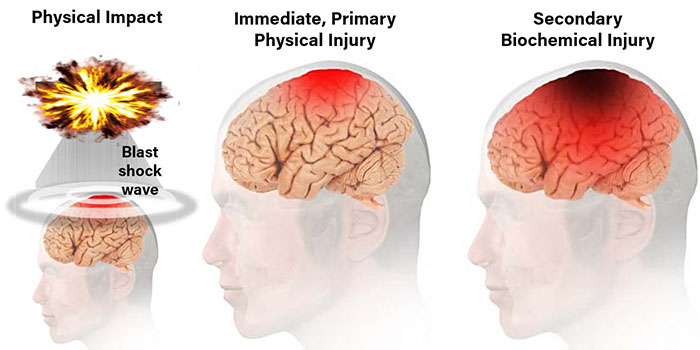
Traumatic Brain Injury Research
Traumatic brain injury (TBI) is an injury sustained to the brain that occurs after the head has suddenly or violently hit an object or something has pierced the skull. TBIs can be categorized into mild, moderate, or severe depending on the damage done to the brain. Symptoms of TBIs can include headache, confusion, dizziness, behavioral or mood changes, trouble with memory, concentration, attention or thinking, weakness, slurred speech, nausea, seizures, among others. Without proper treatment, the effects of brain damage can be irreversible.
Research Overview
As components of the central nervous system, the brain and spinal cord both face similar biological obstacles when injured. While injury to the spinal cord may induce paralysis, damage to the brain may cause physical and cognitive deficits. Since the pathophysiology of CNS tissue shares some aspects, especially in the biochemistry of secondary injury, it follows that some technologies designed for the spinal cord can also be applied to head trauma. Specifically, the center is investigating ways to mitigate secondary injury via repairing damaged cell membranes or targeting reactive species. In addition, the center looks at developing different injury models to mimic real-life injury conditions ranging from severe traumatic brain injury, stroke, to mild repetitive (sub-threshold) situations. A variety of tools, including live animal imaging, histology, and behavioral assessment, are used to measure neurological damage and recovery.
Focus Areas
- Use of injectable membrane fusogens (such as PEG and chitosan) as a means to seal damaged cell membranes and ameliorate secondary injury
- Targeting and neutralization of reactive oxygen species, reactive nitrogen species and aldehydes
- Developing models for stroke, traumatic and sub-threshold mild traumatic brain injury (i.e. concussions)
- Modulation of the neuroinflammatory response post injury
- Localized drug delivery

A traumatic brain injury after an explosion

